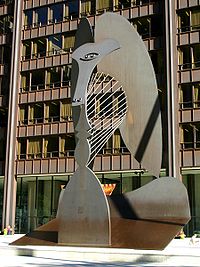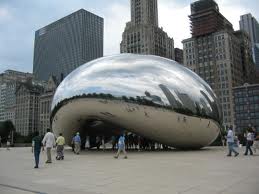Shocking news from Chicago: Richard Daley won’t be mayor for life. Yet he’s the Windy City’s most significant patron of culture, leaving a legacy that ought to — that is, should, and might — survive him. Which was unexpected when he succeeded Mayor Harold Washington in 1989, but clear from my visit to Labor Day weekend’s 32nd annual Chicago Jazz Festival.

 Renzo Piano’s new wing of the Art Institute, Frank Gehry’s Pritzker bandshell and indeed the entire Millennium Park installation have come to fruition during Richie Daley’s six terms. He’s presided during the recasting of the giant convention center McCormick Place, directed plantings in the city’s boulevards, encouraged bike riding, thought green, promoted celebration of a largely gay neighborhood and let Oprah Winfrey close off Michigan Avenue at the head of the Magnificent Mile to televise her tv show’s anniversary
Renzo Piano’s new wing of the Art Institute, Frank Gehry’s Pritzker bandshell and indeed the entire Millennium Park installation have come to fruition during Richie Daley’s six terms. He’s presided during the recasting of the giant convention center McCormick Place, directed plantings in the city’s boulevards, encouraged bike riding, thought green, promoted celebration of a largely gay neighborhood and let Oprah Winfrey close off Michigan Avenue at the head of the Magnificent Mile to televise her tv show’s anniversary
with the amazing Black Eyed Peas mob dance.
howardmandel.com
Subscribe by Email or RSS
All JBJ posts
